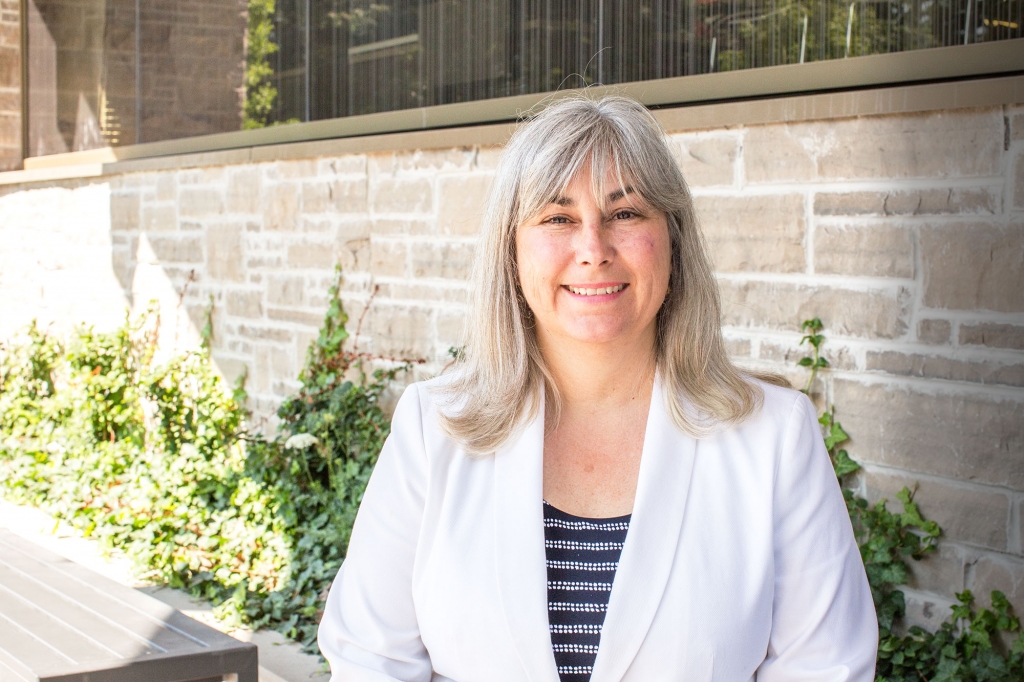How do we uphold our constitutional rights?

This story is one of many that reveal the extraordinary legacy of Boundless: the Campaign for the University of Toronto, which ended on December 31, 2018. Read more inspiring stories of impact and discover why more than 100,000 people came together to make the Boundless campaign an historic success.
Protecting the rights of all Canadians is a vital task if we are to maintain a free society. U of T’s David Asper Centre for Constitutional Rights ensures that the higher courts uphold the Charter of Rights and Freedoms.
In principle, the Canadian Charter of Rights and Freedoms, enshrined in the 1982 Constitution Act, protects all Canadians. In practice, however, arbitrary and outdated interpretations of its provisions can undermine that protection. The Charter is a living document that must be perpetually interpreted anew to protect our freedoms. Not only does this involve advocating for our rights in the higher courts, it also requires academic research and lawyers with a robust education in constitutional law.
The David Asper Centre for Constitutional Rights was founded in 2008 at U of T’s Faculty of Law precisely to uphold the Charter in these three ways: advocacy, research and education.
Keeping an eye on legal trends can protect human rights
As founding donor (and namesake of the Centre) David Asper said in honour of the Centre’s first five years, “Constitutional rights seem like an obscure subject for most Canadians until theirs are adversely affected, and when they are, someone or something has to be there to analyze, evaluate, advocate and litigate when necessary. This precious asset is crucial to the achievement of a fully engaged rights-based society.”
Helping courts understand where laws need updating or upholding
Similar to organizations such as the Canadian Civil Liberties Association, the David Asper Centre intervenes in cases in the higher courts, including the Supreme Court of Canada, to offer its support and expertise. Drawing strength from U of T’s Faculty of Law, the Centre focuses on cases where its unique, academic perspective makes a difference.
For example, the Centre’s interventions may expose how the application of a law may have become incoherent. In other cases, the Centre may demonstrate how new empirical research changes the context of past legal decisions.
In particular, the David Asper Centre focuses on cases where a “remedy” may be a relevant issue, that is, where a claimant may be due material compensation or where a law may be invalidated if it violates the Constitution.
Developing appropriate remedies for the modern age
Professor Kent Roach, who holds the Wilson-Prichard Chair in Law and Public Policy at the U of T Faculty of Law and is on the Centre’s Constitutional Law Faculty, is a global expert in constitutional remedies. Rather than accept how past legal decisions interpreted the constitution according to legal norms, Roach and his colleagues deploy academic research in the courtroom to argue for appropriate remedies, so far with great success.
In one of many noteworthy examples, the David Asper Center joined other interveners in an August 2012 Supreme Court case between Omar Khadr, a Canadian citizen tortured and imprisoned at Guantanamo Bay, and the Prime Minister of Canada. The Centre and fellow interveners successfully argued that Khadr’s Charter rights had been violated at Guantanamo Bay and the appropriate remedy would be to repatriate Khadr to Canada. Khadr ultimately returned to Canada to finish serving his sentence.
Students gain practical expertise through advocacy
While the faculty intervenes in cases and publishes their research, they are also busy training Canada’s next generation of constitutional lawyers. Students gain invaluable practical knowledge through their involvement in the Centre’s advocacy. As Executive Director Cheryl Milne explains, “the focus of the Asper Centre is to provide students with a well-rounded education in constitutional law, expose them to the Centre’s expertise in providing ordinary citizens with access to constitutional justice, and give them direct experience with Charter litigation.”
Training the future defenders of our constitutional rights, along with publishing research and actively advocating for those rights, is an important mission. Done right, it keeps the Charter of Rights and Freedoms alive and helps us maintain a healthy Canadian democracy.
